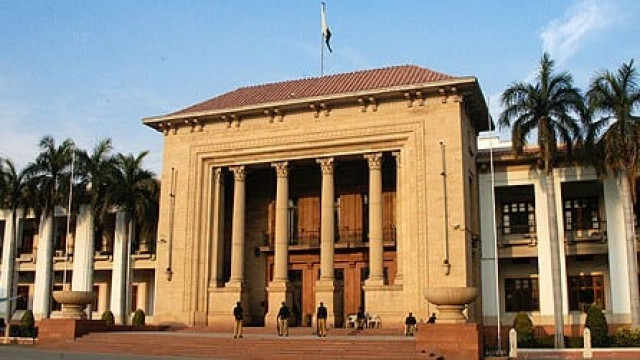Fate of PML-Q unification bloc still fragile
Dissidents have chosen their own leader to avoid any threat from article 63-A.

Dependent on support from the unification bloc after ousting the PPP from its coalition, the PML-N led Punjab government is vulnerable to the litigation under article 63-A of the constitution, which disqualifies a legislator from holding office for changing political loyalty.
However, the party claims that the clause will be operative from the next elections as inscribed in the 18th constitutional amendment.
After parting ways from the Pakistan Peoples Party (PPP), the PML-N needs the “unification bloc,” a breakaway faction of 47 members from the opposition Pakistan Muslim League-Quaid (PML-Q), to continue its rule in the province.
The amended article, 63-A, is not operative yet, but the same article as it was before the passing of the 18th amendment can be invoked to disqualify members of the unification bloc, which is a difficult but doable task provided the PPP and PML-Q make serious efforts, political experts say.
The constitution empowers the “head of a party” to send a reference against any member who defects from the political party at any stage once elected on its ticket. This provision will be effective from the next general elections as is written in the 18th amendment.
It is said that the amended article’s relaxed timeframe was given on the insistence of the PPP, which feared it could lose support in Balochistan, where it formed its government in 2008 with the support of around 20 defectors of the PML-Q.
The constitution envisages that until the new amendment comes into effect, the existing provisions of article 63-A will remain operative. However, there is no bar if political parties follow the amended version.
Before article 63-A was amended, it was the prerogative of the head of a parliamentary party (the party leader who heads the party in the legislature) to send a disqualification reference against a defecting member. The provision is still operational and can be invoked by opponents of PML-N in Punjab.
The bloc has chosen its own parliamentary leader to avoid any threat from the constitution in its present form.
In the house of 371, PML-N needs support of at least 186 member for a simple majority in the Punjab Assembly. At the moment, the PML-N has 171 members, the PPP 106, while the PML-Q has 34 members in the provincial assembly. There are 13 other parliamentarians from smaller groups while one seat is vacant.
Under the existing scenario, the PPP, PML-Q and smaller groups do not have a combined numerical strength to turn tables by bringing any in-house change through a vote of no confidence against Punjab Chief Minister Shahbaz Sharif. However, the political opponents of PML-N can reverse the situation if they succeed in regaining the loyalties of 10 plus members from the unification bloc.
Published in The Express Tribune, February 28th, 2011.



















COMMENTS
Comments are moderated and generally will be posted if they are on-topic and not abusive.
For more information, please see our Comments FAQ